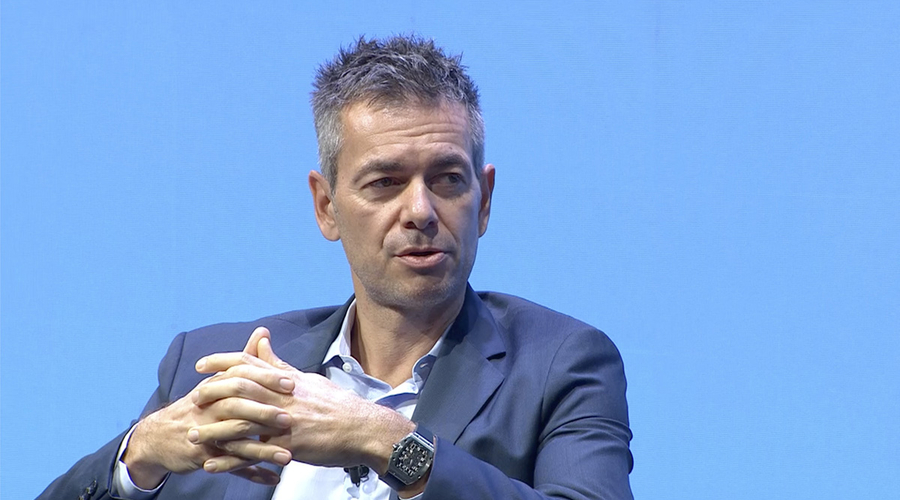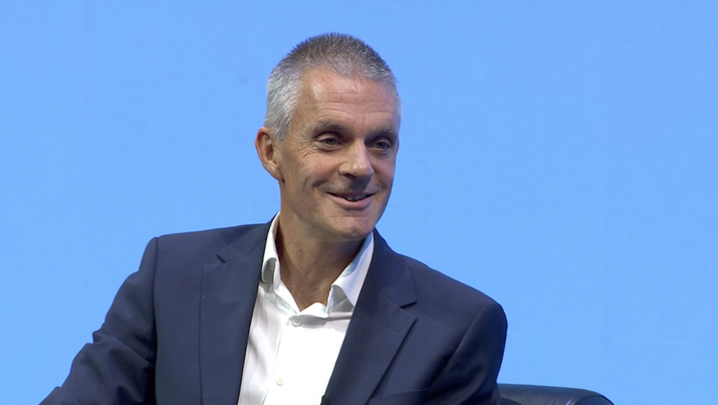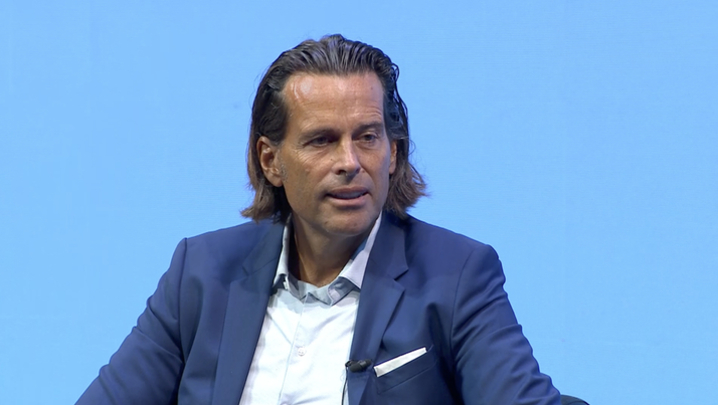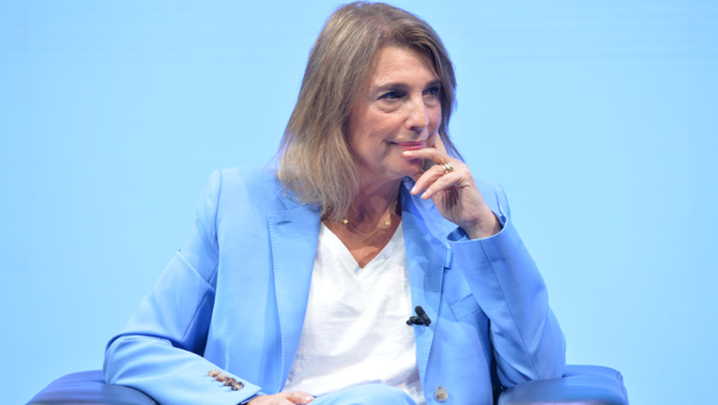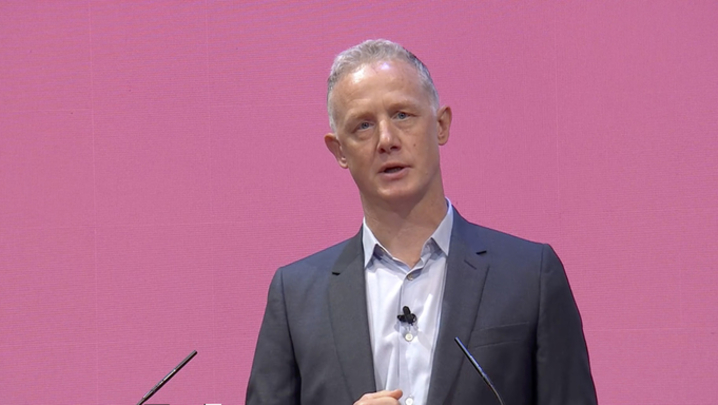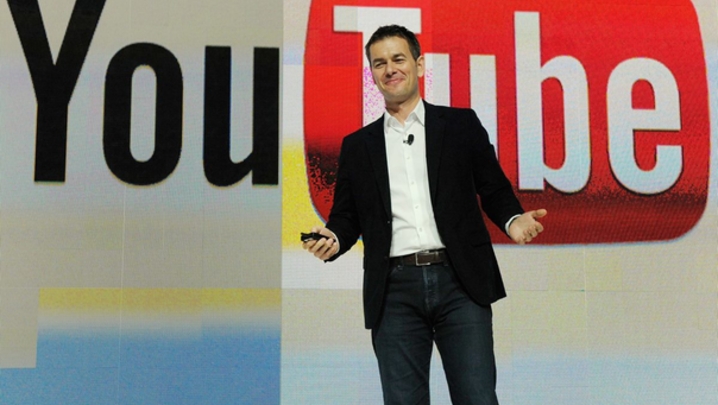YouTube’s chief business officer tells the RTS how his platform supports 30,000 jobs in the UK
Only a few days before Robert Kyncl sat down for his international keynote session at this year’s RTS Convention, he was on the red carpet in New York for that most exclusive of affairs, the annual Met Gala, presided over militarily by Anna Wintour.
It is testament to the cultural significance of YouTube’s chief business officer that the Vogue supremo invited Kyncl to fill a whole table at the Gala with his own guests, mostly super-successful content creators on YouTube.
And it is testament to his vision that the combined fan following of his table that evening, including names such as creator/actor Addison Rae and beauty vlogger NikkieTutorials, added up to more than 40 million subscribers.
“We bring all types of creators to the Met, an incredibly diverse group of accomplished people,” Kyncl explained and, for sure, he has a large number of potential guests to choose from – 2 million, to be precise. That is the number of “partners” being paid by YouTube to create content for its platform, just one of the jaw-dropping statistics revealed by Kyncl.
“In the past three years, we’ve paid out $30bn to partners – £1.7bn in the UK over the last year, creating approximately 30,000 jobs. We’re roughly neck and neck with Netflix in revenue and we’re growing faster. When you think about our payouts, we’re now the largest content licensor in the world.”
Having been in his role for 11 years, Kyncl is a big champion of the user creatives who comprise 50% of YouTube’s entire offering. He often shares their content across his own social media and, in Cambridge, he explained why he considered them a complement, not a competitor, to traditional television: “It’s not only new talent but new formats that are arriving. It’s wonderful to see new channels – science lectures, pub quizzes, exercise videos – so many different forms of content that are difficult to pack into a 24-hour live stream on television. It’s something that is augmenting television programming.”
Kyncl had special praise, too, for his British partners’ ability to reach overseas audiences via YouTube: “On average, 55% of any new channel is exported overseas. In the UK, it’s actually 75%. The UK has historically been very good at exporting its culture all around the world.”
The rewards for those who find big audiences anywhere are generous, he revealed. “Of all our revenue, we pay more than half to creators.” In addition, he has identified at least nine other ways for creators to make money, including individual subscriptions to channels and even exposure to rival platforms. “They can build their audiences, start making money from that, then figure out other ways, sell products either on YouTube or other platforms, or make TV programmes with other broadcasters. I look on it all as brand building. No one is exclusive to anyone.”
Freedom, it seems, is Kyncl’s watchword in all things – understandable when his childhood in Communist-run Czechoslovakia is factored in. He recounted a telling anecdote to explain his approach: “When I was in high school, we used to listen to Voice of America on a transistor radio and the Czech Government would scramble the frequency so we couldn’t really hear it.
“It was really poor quality, but that was the only way we’d get any news from outside the Eastern Bloc. It was completely different to what we would read in the newspapers.
“Censorship and all of these words – people throw them around without truly understanding what they mean. For me, it’s personal. I’ve lived it, I know the other side and so I value openness quite a lot.”
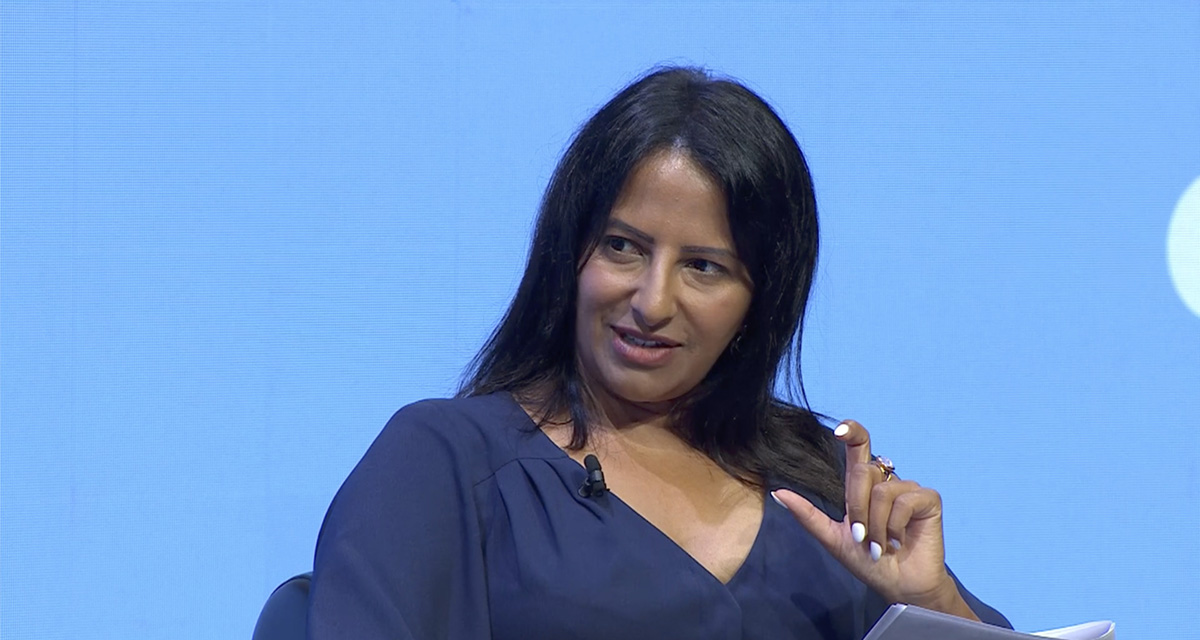
That principle has fuelled Kyncl’s work since he arrived at YouTube over a decade ago from Netflix, where, in 2007, he helped move the streamer online from its previous incarnation of a company that stuffed DVDs into envelopes.
“I could see how unfigured it was back then,” he remembered of his arrival at his present company. “Everything I’d done before was about subscriptions, and YouTube was the opposite of that. It’s global, it’s open, with all the challenges that come with that. For me, it was the mountain to climb that was attractive.”
That mountain’s first big obstacle was persuading owners of intellectual property – who were used to sweeping YouTube and other platforms for pirate content – that collaborating with the upstart would be in their favour.
Just as Steve Jobs managed with iTunes, so Kyncl was able to square this circle, something he looked back on at Cambridge: “Back in 2007-08, we were consumed by other people’s videos and nobody could figure out what to do about it. We had lots of lawsuits against us at that time. The first thing we had to do was figure out some way to get people to pay and send the revenue to the contract holders, and to convince companies to start using it. We basically went from being sued while people worked out how to block us, to not being blocked, and being monetised instead.”
Kyncl’s time at YouTube has seen it evolve from a platform full of grainy home videos to something far more substantial – offering content on everything from movies and music to politics and knitting demonstrations – almost anything a consumer could possibly want.
But if openness has been Kyncl’s fuel, it has also been tested throughout his time at YouTube, and never more so than in the past 18 months, when his platform has been the chosen channel for many users to share content on false Covid cures and pandemic conspiracy theories, and encouraging their subscribers to destroy 5G masts.
For Kyncl, a robust, considered framework for company guidelines on content removal has been key. He said: “Content moderation is something we’ve worked on for a very long time, over a decade. It’s just got a lot more attention over the past five years, and more so in the last two years.
“Since last February, we’ve removed over 1 million videos over false cures and claims [that Covid is a] hoax. This is a living, breathing organism, so you have to constantly look out for the new ways that people are getting into the system.
“I spoke about openness, but we need a set of policies that allows you to make these decisions in a principled way, rather than in a subjective way. It would have been very irresponsible for us to create a brand new policy in 48 hours. But because we’d done so much work over the years, this was much easier.”
He said that, as of April 2021, the amount of “violative content” viewed on the platform was at a new low of 0.16%. His focus was on making sure that percentage continued to decrease.
More generally, in terms of curating those millions of content creators, Kyncl summed up YouTube’s set of policies as “Remove, reduce, praise and reward”.
He clarified this: “Removing means removing the posters of violative content immediately. Reducing means lessening the status of someone who is a frequent offender but whose content is acceptable. We won’t remove them but we won’t give them any help at all.”
What does “praise” look like? Kyncl explained: “We work with news publishers to make sure we’re praising content from organisations that are fact-checking, reputable and useful. We make sure they’re raised to the top. We’re pushing authoritative content, precisely the opposite of those we reduce.”
As for “reward”, that didn’t need explaining. Presumably, we’ll see those lucky few at next year’s Met Gala.
Session Two: ‘International keynote: Robert Kyncl’. YouTube’s chief business officer was interviewed by Ranvir Singh, presenter and political editor, Good Morning Britain. The producer was Helen Scott. Report by Caroline Frost.

